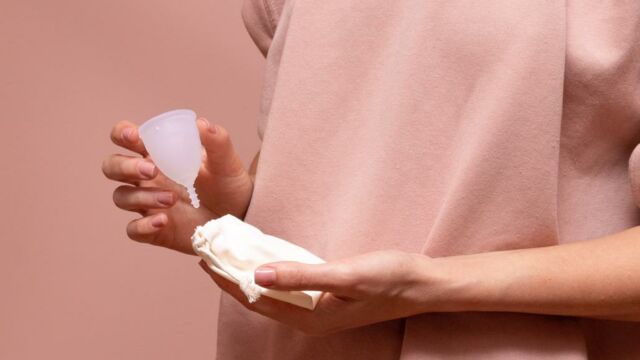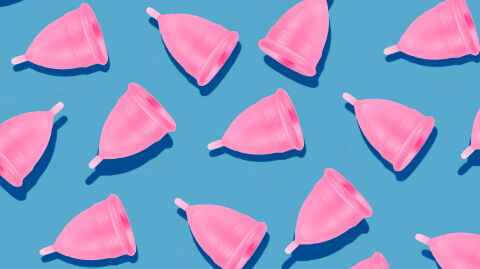Menstrual cups have become wildly popular essentially because they are a leak-proof solution. They are a safe, economical, reusable and environmentally friendly option to use while on your periods. But sadly, lack of awareness has been a cause of bad press for them.
Discover our latest podcast
With what floats on the internet and from what you hear from people, it could be tough to come around to any decision on menstrual cups, especially if you are using them for the first time.
One size fits all
Since not all vaginas are alike, menstrual cups come in different sizes. They cater to the needs of both your cervix height and flow. Their size depends on your flow, age, and birth history and you should consider all these factors before settling for a size that doesn’t suit you well.
Virginity gets affected by menstrual cups
Menstrual cups have nothing to do with your virginity! The supposed virginity determinant—hymen, is just an elastic issue that is flexible and they cannot break it. The only thing that affects your virginity is sex, so virgin or not—they are for all!
Menstrual cups will stretch the vagina
Vaginas can pass through a baby and come back to the regular size, so a 4cm cup cannot and will not stretch your vagina. Vaginas are flexible so, when you insert a menstrual cup, the walls of the vagina bend and move to create space for it.
Menstrual cups could get lost in the vagina
Menstrual cups cannot pass through your cervix as your vagina isn’t a tunnel that engulfs things. The cups remain stuck to the cervix and cannot get into the uterus.
Menstrual cups are uncomfortable
It could appear so in the first-time use but they are not. After the initial 2-3 menstrual cycle, they become easy to use. They are very soft and flexible.
Menstrual cups cannot handle heavy periods
There’s a reason why menstrual cups come in different sizes. On average, women lose 80 ml of blood during periods, so menstrual cups are pretty efficient in that sense to support heavy periods.
You cannot pee if you wear a menstrual cup
Let’s go back to biology class. You pee from the urethra and you bleed from the vagina. So Menstrual cups do not interfere with your peeing.
You cannot sleep while wearing a menstrual cup
Sleeping in menstrual cups is stress-free as compared to wearing bulky pads or tampons, and they're a lot safer. Most of the time, the menstrual cup isn’t even half full while you sleep. You can wear a menstrual cup for up to 12 hours.















